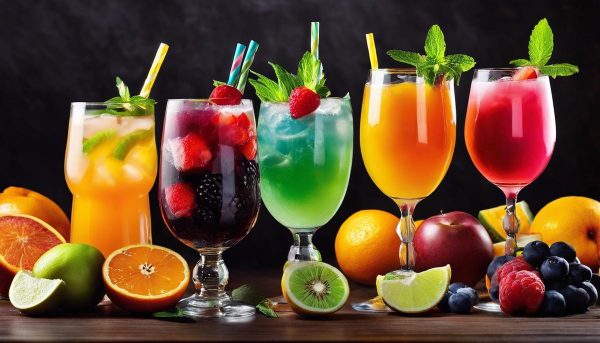Hydration, an integral element of our survival, is more than just quenching one’s thirst. Our bodies depend on it for nearly every critical function. From aiding digestion to transporting nutrients and eliminating waste, water’s importance cannot be understated. However, the need for this essential resource varies with each passing stage of human life – a child’s frequency of hydration profoundly differs from that of an adult or an elderly person.
Furthermore, recognizing and effectively managing dehydration can truly be a lifesaver, especially under unique circumstances such as during pregnancy or illness. It’s also vital not to overlook the challenge of implementing a consistent hydration routine for the entire family. But fret not, as there are innovative and enjoyable ways to ensure everyone stays well-hydrated from dawn until dusk. This analysis peels back the layers on the topic of hydration, aiming to deepen our understanding and appreciation of water’s indispensable role in our health.
Understanding the Importance of Hydration
Unlock the Secret to Family Wellness: The Importance of Hydration in Everyday Life
Did you know that our bodies can survive for weeks without food, but just a few days without water? Yes, water is a vital resource! Keeping the family hydrated isn’t just about quenching thirst, it holds the key to the well-being of every single member. By understanding the importance of staying hydrated and how it can affect your household’s overall health, you’ll soon consider it an essential part of your family wellness routine.
Water serves as the body’s transport system, carrying nutrients, flushing out toxins, and aiding bodily functions. It helps maintain a healthy weight and is beneficial for the skin, not to mention its role in ensuring smooth digestion. Plus, the brain is about 75% water, so it’s fair to say that hydration influences cognitive function and mood. Now, who wouldn’t want a happier and healthier home?
Kids, in particular, can heavily benefit from being well-hydrated. Staying hydrated can enhance their concentration and memory, especially during school hours. It can also boost their energy levels, helping them to thrive in their favorite sports or activities. Moreover, hydration can help prevent children from getting ill, as it strengthens the immune system.
Sure, there are electrolyte-laden sports drinks and sweet juices available, but nothing beats plain water. It’s calorie-free, sugar-free, and readily available. Start fostering a culture of hydration in your home, swapping sugary beverages for a refreshing glass of water, or fruits rich in natural fluids.
Teenagers might find it challenging to stay hydrated due to their busy schedules. Reminders or hydration goals can be beneficial for them. Mobile apps are a great way to make this fun while reinforcing the importance of water intake.
Hydration is even more critical for pregnant and breastfeeding parents. It stimulates a healthy circulation of nutrients and blood that cradles a growing baby. Besides, hydration can help manage some pregnancy woes like constipation and urinary tract infections.
In the home, the biggest challenge families face in staying hydrated is developing the habit. A great place to start is by making drinking water fun! Try jazzing up your water with slices of fruits or herbs, or using fun reusable water bottles of different shapes and colors. Also, leading by example and having water with every meal can go a long way.
As the proverb goes, health is wealth. Water can do wonders for your family, but the secret ingredient is fostering a culture of hydration. It’s not revolutionary, but it’s incredibly effective. Keep in mind that every sip is a step towards a more robust and happier family. So, here’s to raising your glass of water to the wellness of your family! Just remember, it’s not just about drinking water; it’s about creating a lifestyle that your family can follow for a lifetime. Cultivate this habit now, and your future selves will thank you!
Hydration Needs for Different Age Groups
Hydration Needs Across Different Age Groups – A Comprehensive Guide
Hydration plays an incredibly vital role in our day-to-day life, with its importance only magnifying as we move through various age brackets. Not only does water help in maintaining the right body temperature, but it is also instrumental in ensuring the correct functioning of different body organs. Therefore, understanding how hydration needs change with age is of paramount importance.
Starting with the younger age group, infants and toddlers, hydration must be handled with alertness and caution. They have smaller bodies and hence, a smaller water reserve. The American Academy of Pediatrics advises breastfeeding for infants up to six months old, gradually introducing water and juices at around six months of age. For toddlers, water accompanied by age-appropriate fluids ensures optimal hydration.
As children grow into their school years, they tend to be more active, and hence, their body demands more hydration. It is vital to instill in them the habit of routine water consumption. Notably, during high-intensity physical or outdoor activities, regular intake of water coupled with other fluids like natural juices or milk promotes balanced hydration.
Teenagers, while independent, may overlook the importance of regular water consumption. Given their active lives and involvement in various sports activities, adolescents must consciously maintain an adequate hydration level. A valuable tip here is to keep a water bottle at hand, reinforcing the habit of drinking water frequently.
Moving into adulthood, an individual’s hydration requirement slightly increases – a fact often overlooked amidst the bustling lifestyle changes of adulthood. It is crucial to balance the consumption of caffeinated beverages with plenty of water. Also, during pregnancy and breastfeeding, the need for hydration surges to support the increase in blood volume and milk production. During this time, hydration checklists and reminders could prove favorable.
Senior citizens may experience a decrease in their sense of thirst, which often leads to inadequate hydration. Family members and caregivers must encourage regular fluid intake to maintain their overall health and wellness. Soups, decaffeinated beverages, and fruits with high water content can be good alternatives for maintaining hydration levels.
Above all, creating an environment that encourages hydration can go a long way in promoting healthier habits in families. Utilizing water filters for purifying tap water or infused water with fruits can make hydration more appealing. To make it more fun, one can include hydration breaks during family activities or have friendly competitions on daily water intake.
Remember, while it’s important to promote hydration, it’s equally important not to over hydrate. Striking a balance is key to optimal health and wellness across all age groups. So, take a step today and raise a glass (of water!) to health!
Innovative Ways to Keep Your Family Hydrated
As committed parents nurturing a vibrant family unit, we all carry the quiet power to instill life-sustaining habits. One such habit that can’t be overstressed is encouraging proper hydration for every member of our family. Just as our bodies each have unique qualities, our hydration needs differ according to age, activity level, and even individual health factors. Building on the foundation of understanding the importance and benefits of ample hydration, let’s dive deeper into how our family can stay quenched.
Little bundles of joy come with their own set of hydration rules. Babies below six months thrive solely on breast milk or formula, which provides the hydration they require. After six months, as solid food takes tiny steps into their diet, it’s advisable to start introducing a few sips of water and diluted juices as shared by the American Academy of Pediatrics.
Once our little warriors venture into the toddler stage, their water requirements increase. By this age, they should be drinking one to four cups of water daily. As parents, consider introducing age-appropriate fluids and creating playful and visually appealing drinking vessels to make hydration fun!
Entering their fruitful school years, children become more independent and more active. This is an opportune time to inculcate the habit of routine water drinking. As the physical intensity of their activities increases, their hydration needs bump up, too. Sports drinks can offer replenishment during or after strenuous workouts, but remember, water is always the top pick.
Teenagers should be reminded that water can reinforce their energy levels, nourish their skin, and aid concentration. One practical tip is encouraging them to carry a sleek water bottle at all times, keeping them hydrated and trendy!
Adulthood triggers changes in the body, and hydration needs shift slightly higher. Caffeine sneaks into our daily diet and, while offering its own perks, it is essential to balance caffeinated beverages with regular water intake.
Pregnant parents encounter a surge in fluid needs. The body is working overtime, constructing a miracle, and water supports this remarkable endeavor. During breastfeeding, water becomes even more important! To keep this essential practice from being sidelined, setting up hydration reminders could be helpful, creating a nurturing, attentive environment for the feeding parent and baby.
Hydration needs don’t stop evolving as we age. Often, senior family members experience a decreased sense of thirst, an issue that could potentially lead to dehydration. Regular intake of fluids, along with water-rich alternatives like soups and decaffeinated beverages, can aid in maintaining healthy hydration levels.
Beyond meeting the specific needs of each family member, it’s vital to foster an environment that encourages everyone to stay well-hydrated. Consider investing in a water filter for improved taste or experimenting with infused water to give regular water a delightful twist.
Moreover, discernment is key. While maintaining hydration is a life-long commitment, it’s also important to ward off overhydration. Consuming excessive quantities of water can have negative health implications. Striking a balance, as in all areas of life, creates an enduring harmony.
Inculcating a culture that values hydration fortifies a fundamental link in our family’s health chain. Through it, we contribute to fostering an environment of wellness and vitality, equipping our loved ones to be the best they can be. Gratifyingly, through a glass of water at a time, we supplement our family’s journey toward spiked immunity, improved cognition, and general well-being.
Ultimately, we must never underestimate the significance of hydration to our overall health and well-being. Age-specific hydration requirements, understanding dehydration and its effects, as well as methods to engage the whole family in drinking adequate water daily, are all crucial aspects of this journey. While the challenge of promoting hydration across all family members might seem daunting, adopting creative methods can transform this task into an enjoyable routine.
Whether through hydration reminders, infusion of flavors into your water, or eating foods with high water content, the goal remains the same – continued good health through proper hydration. This comprehension opens the door to a healthier lifestyle for you and your family. As we go forward, let water be the unsung hero guiding us toward a path of improved health, sharper cognition, and a balanced life.


